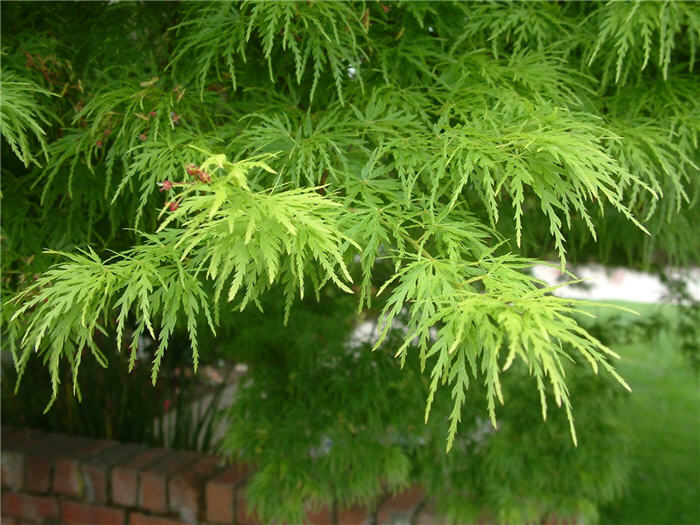| Botanical Name: Acer palmatum 'Dissectum' | |
| Common Name: Laceleaf Japanese Maple |

-
Anatomy
-
Culture
-
Design
Plant Type
Tree
Height Range
3-6'
Flower Color
n/a
Flower Season
n/a
Leaf Color
Gold, Green
Bark Color
Brown
Fruit Color
n/a
Fruit Season
n/a
Sun
Half, Shade
Water
High, Extra in Summer
Growth Rate
Slow
Soil Type
Clay, Loam
Soil Condition
Average, Rich, Well-drained
Soil pH
Acid, Neutral
Adverse Factors
n/a
Design Styles
Formal, Japanese, Woodland
Accenting Features
Fall Color, Specimen
Seasonal Interest
Winter, Fall
Location Uses
Entry, Shrub Border, Foundation, Raised Planter
Special Uses
Small Spaces
Attracts Wildlife
n/a
Information by: Stephanie Duer
Photographer: Don Syrek, Connon N.
Photographer: Don Syrek, Connon N.
-
Description
-
Notes
This small Japanese maple has bright green lacy leaves. It rarely gorws taller than 6 feet and usually is wider than tall. It has a distinctive weeping habit and a lacy appearance. Bright green foliage turns golden yellow in fall. Slow growing.
As will all Japanese Maples, provide deep, rich, well composted soil. If you are amending the soil, it is best to dig in compost to the plant's eventual width, so as to provide adequate conditions for the entire, eventual root profile. Amending just the hole that the tree is planted in is akin to planting the tree in a slightly bigger pot. Plant in filtered light to full shade, avoiding any mid-day sun or reflective sun. East or north exposures are best unless thre is a very good canopy and no reflective heat. Water weekly. Do not shear.